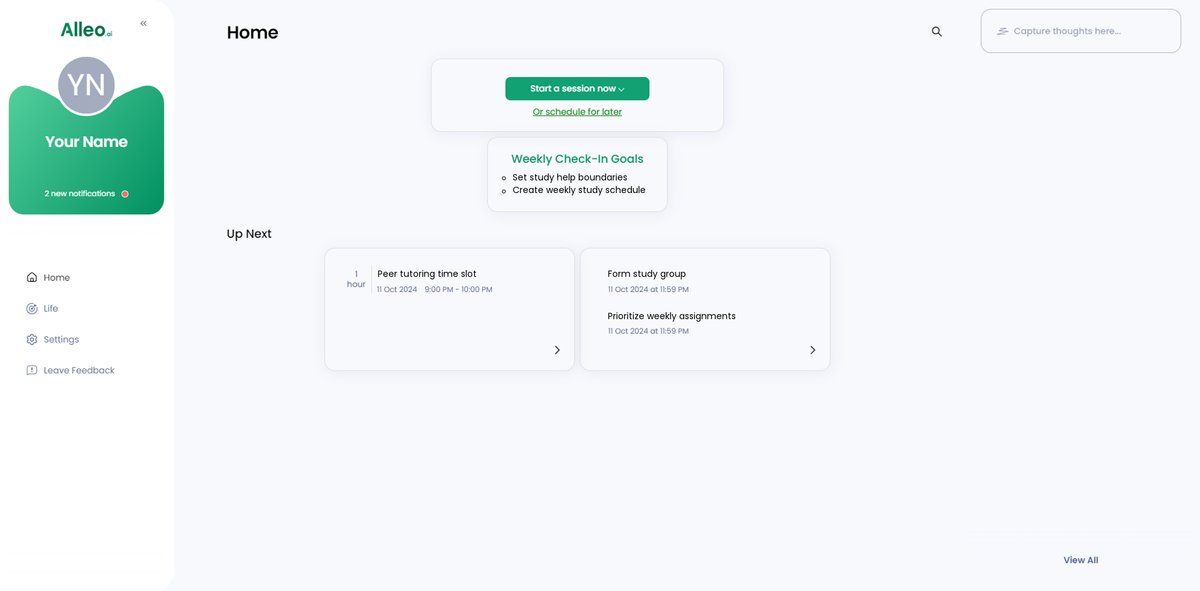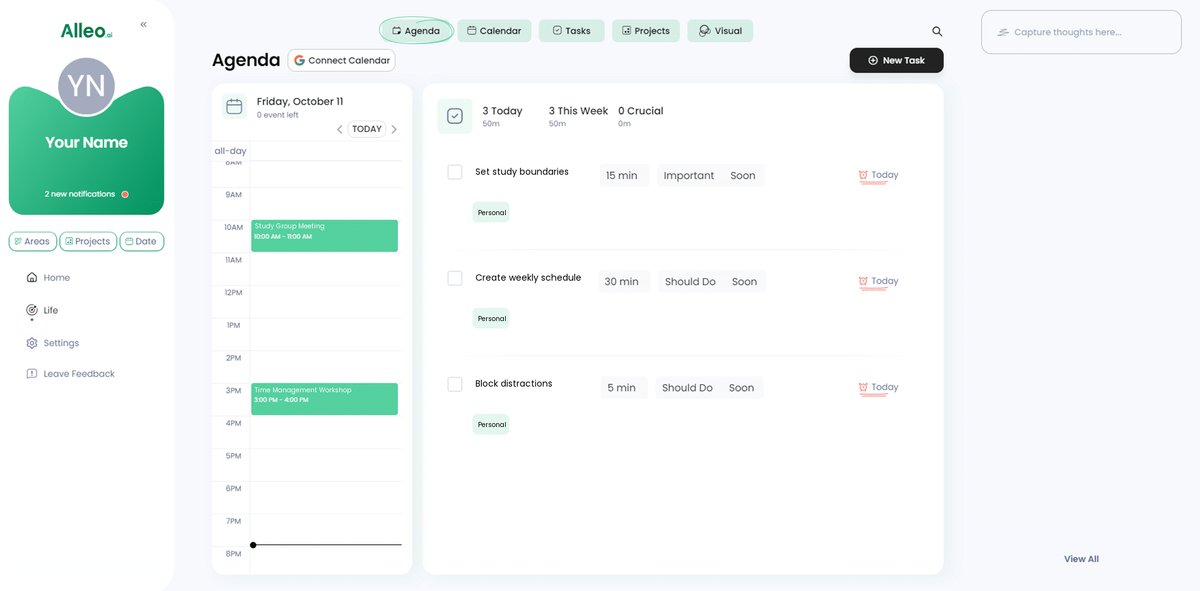How to Balance Helping Classmates with Homework and Managing Your Own Studies: A Comprehensive Guide
Have you ever felt overwhelmed by the constant tug-of-war between helping classmates with homework and managing your own studies? Balancing studies and peer support can be a challenging task for many students.
As a life coach, I’ve guided many students through this exact struggle. Balancing personal academic responsibilities with peer support requires effective time management for students and setting boundaries in study groups.
In this article, you’ll discover strategies to set boundaries, create structured schedules, form study groups, and use time blocking to manage your time effectively. These tips will help you improve your study productivity and explore the benefits of peer tutoring while maintaining academic integrity.
By the end, you’ll have actionable steps to improve your academic performance, reduce stress, and master the art of balancing social and academic life.
Let’s dive in and explore collaborative learning strategies that will help you in balancing studies and peer support.

The Dual Struggle: Personal Academics vs. Peer Support
Imagine trying to maintain your own studies while constantly assisting classmates. Many clients initially struggle with balancing studies and peer support, leading to stress, burnout, and lower personal performance.
In my experience, people often find themselves sacrificing their own academic success to help others. This scenario is common in collaborative learning strategies and emotionally draining, affecting one’s ability to prioritize personal academic goals.
Finding a balance is crucial for long-term success and well-being. Without effective time management for students, the risk of burnout and declining grades is real.
Balancing both responsibilities requires strategic planning. Let’s explore actionable steps to manage this challenge effectively, incorporating study productivity tips and stress management for students.

Strategic Steps to Balance Academics and Peer Support
Overcoming this challenge of balancing studies and peer support requires a few key steps. Here are the main areas to focus on to make progress in time management for students.
- Set clear boundaries for helping time: Define specific times for assisting classmates and stick to it, prioritizing personal academic goals.
- Create a structured study schedule: Use a planner to map out your commitments and allocate time blocks, improving study productivity.
- Form study groups for mutual support: Collaborate with classmates who have similar goals and challenges, leveraging collaborative learning strategies.
- Use time blocking for personal study sessions: Break study tasks into manageable time blocks for focused work, applying effective study techniques.
Let’s dive into these strategies for balancing studies and peer support!
1: Set clear boundaries for helping time
Setting clear boundaries for helping time is essential to balance studies and peer support while managing personal academic responsibilities.
Actionable Steps:
- Communicate your availability clearly. Let your classmates know specific times when you can help, such as one hour every Tuesday and Thursday, to prioritize personal academic goals.
- Use a shared calendar. Schedule these help sessions on a shared calendar to manage expectations and avoid ad-hoc requests, improving time management for students.
- Stick to the schedule. Ensure you adhere strictly to the agreed times to maintain your personal study time and enhance study productivity.
Explanation:
Implementing these steps helps manage your time effectively, reducing stress and preventing burnout. This structured approach ensures that you can assist your peers without compromising your own studies, balancing social and academic life.
According to Eastern University’s Academic Resource Center, setting clear boundaries and managing time efficiently contribute to better academic performance and overall well-being, which are key aspects of balancing studies and peer support.
Remember, it’s okay to prioritize your needs and set limits on your availability when balancing studies and peer support.

2: Create a structured study schedule
Creating a structured study schedule is crucial for balancing studies and peer support, ensuring that you can manage your own academic responsibilities while supporting your classmates.
Actionable Steps:
- Map out all commitments: Use a planner or digital tool to list all your academic and personal commitments for the week, aiding in time management for students.
- Allocate time blocks: Designate specific times for different subjects, assignments, and study sessions, ensuring a balanced workload and incorporating effective study techniques.
- Include buffer times: Add extra time for unexpected tasks or last-minute revisions to keep your schedule flexible, which is essential when balancing studies and peer support.
Key benefits of a structured study schedule:
- Improved time management
- Reduced stress levels
- Better academic performance
Explanation:
By organizing your time efficiently, you can balance your studies and peer support without feeling overwhelmed. This approach helps reduce stress and improve academic performance while prioritizing personal academic goals.
According to Drake University, using digital tools for time management can significantly enhance productivity and organization.
Remember, a well-structured schedule can make a world of difference in achieving your academic goals and maintaining a balance between social and academic life.

3: Form study groups for mutual support
Forming study groups can be a game-changer in balancing studies and peer support while managing your academics and helping classmates.
Actionable Steps:
- Identify like-minded classmates: Find peers who have similar academic goals and challenges to form a study group for effective time management for students.
- Schedule regular sessions: Plan weekly study sessions where everyone can contribute and benefit from collective learning, enhancing collaborative learning strategies.
- Rotate leadership: Ensure that each member leads a discussion or study topic to keep engagement high and distribute responsibility, promoting effective study techniques.
Explanation:
Study groups provide mutual support and foster a collaborative learning environment. This approach helps everyone stay on track and benefit from shared knowledge while balancing studies and peer support.
According to Georgia Southern University, integrated tutoring services across different departments enhance learning outcomes. By forming study groups, you can balance peer support with personal academic responsibilities effectively, realizing peer tutoring benefits.
Study groups can be a powerful tool when used correctly, aiding in prioritizing personal academic goals and stress management for students.

4: Use time blocking for personal study sessions
Using time blocking for personal study sessions ensures you allocate focused periods to your own studies without interruptions, helping you in balancing studies and peer support effectively.
Actionable Steps:
- Break down tasks: Divide your study material into smaller, manageable blocks and assign specific time slots for each, improving time management for students.
- Prioritize tasks: Focus on the most critical and difficult subjects first, ensuring you tackle the hardest tasks when your energy levels are highest, which aids in prioritizing personal academic goals.
- Include breaks: Schedule short breaks between study blocks to rest and recharge, maintaining your productivity and focus, which is crucial for stress management for students.
Effective time blocking techniques:
- Use the Pomodoro Technique (25-minute focus sessions) as one of the effective study techniques
- Implement the 2-minute rule for quick tasks
- Set clear start and end times for each block to enhance study productivity tips
Explanation:
Implementing time blocking helps you stay organized and ensures that you dedicate sufficient time to each subject. This method reduces the risk of procrastination and enhances productivity, supporting your efforts in balancing studies and peer support.
According to Simplilearn, using a daily schedule template and time blocking technique can help manage time effectively and improve academic performance.
By sticking to this method, you can maintain a balanced workload and avoid burnout, which is essential for balancing social and academic life.

Partner with Alleo to Balance Academics and Peer Support
We’ve explored the challenges of balancing studies and peer support. Solving these issues can boost your academic success and improve time management for students.
Did you know you can work with Alleo to make balancing studies and peer support easier?
Set up an account with Alleo. Create a personalized plan tailored to your needs, focusing on effective study techniques and prioritizing personal academic goals.
Alleo’s AI coach will guide you through setting boundaries in study groups, scheduling, and forming collaborative learning strategies. Alleo sends reminders and notifications to keep you on track with study productivity tips.
Ready to get started for free? Let me show you how to balance social and academic life!
Step 1: Log In or Create Your Account
To start balancing your academics and peer support, log in to your existing Alleo account or create a new one if you haven’t already.

Step 2: Choose Your Focus – Building Better Habits and Routines
Click on “Building better habits and routines” to address the challenges of balancing personal studies and peer support, as this goal will help you develop structured schedules and set clear boundaries for managing your time effectively.

Step 3: Select ‘Personal’ as Your Focus Area
Choose the ‘Personal’ life area to address your academic balancing challenges, as it encompasses time management, study skills, and peer relationships – all crucial for improving your ability to manage personal studies while supporting classmates effectively.

Step 4: Starting a coaching session
Begin your journey with Alleo by scheduling an initial intake session, where you’ll discuss your academic goals and challenges, allowing the AI coach to create a personalized plan that balances your studies with peer support commitments.

Step 5: Viewing and managing goals after the session
After your coaching session, check the Alleo app’s home page to see the goals you discussed, allowing you to easily track and manage your progress in balancing academic responsibilities and peer support.

Step 6: Adding events to your calendar or app
Use Alleo’s calendar and task features to schedule your study sessions, peer support time blocks, and group meetings, allowing you to easily track your progress in balancing academic responsibilities and helping classmates.

Finding Balance and Achieving Success
Balancing studies and peer support is challenging but achievable. By setting clear boundaries, creating structured schedules, forming study groups, and using time management for students techniques like time blocking, you can manage your time effectively.
Remember, it’s essential to prioritize personal academic goals. Your academic success and well-being matter when balancing social and academic life.
Using tools like Alleo can make this process easier. Alleo helps you set boundaries in study groups, create schedules, and stay on track with effective study techniques.
Try Alleo for free today. Take control of your study productivity and support your peers without sacrificing your own success in balancing studies and peer support.
You’ve got this!